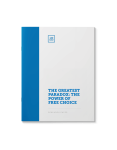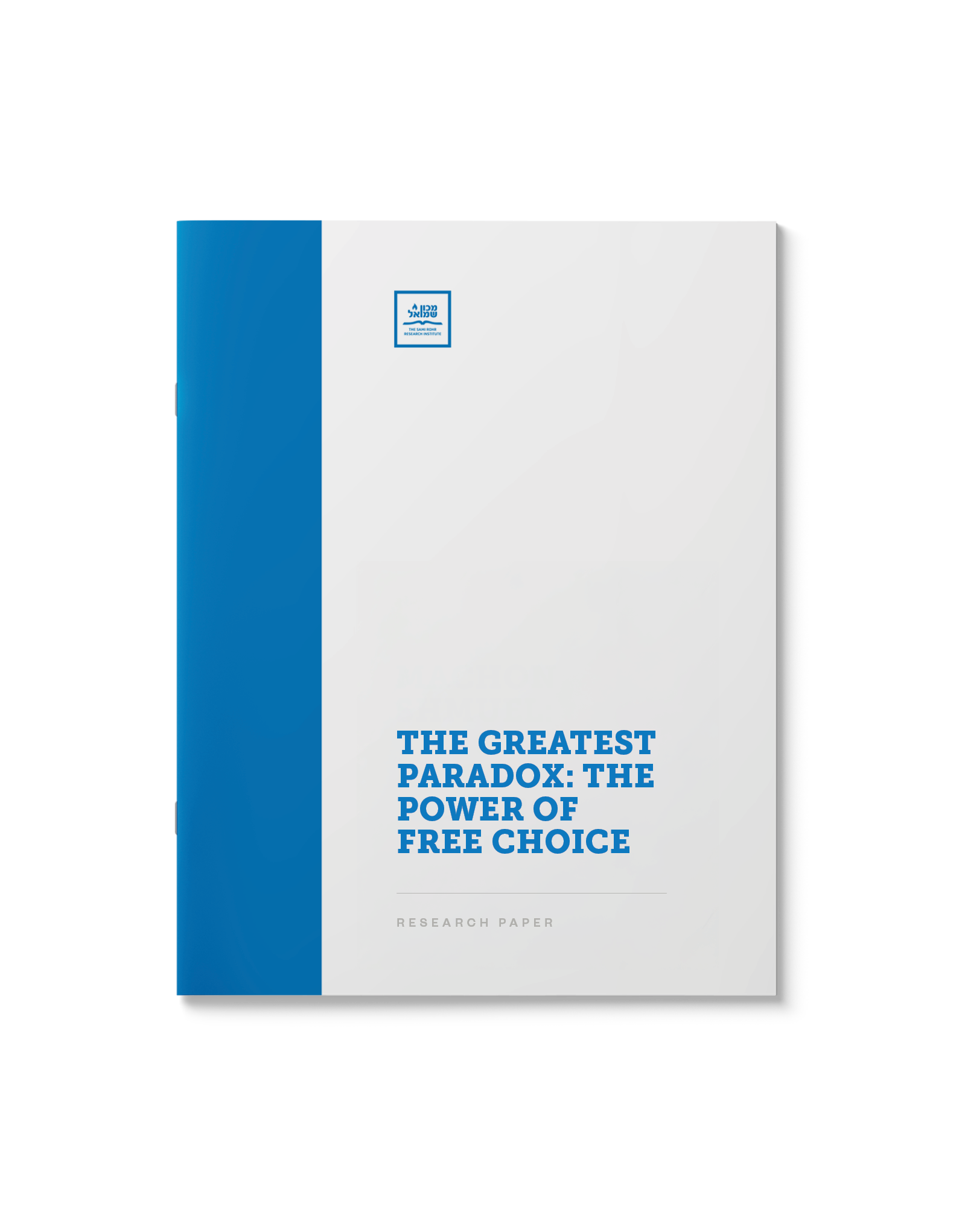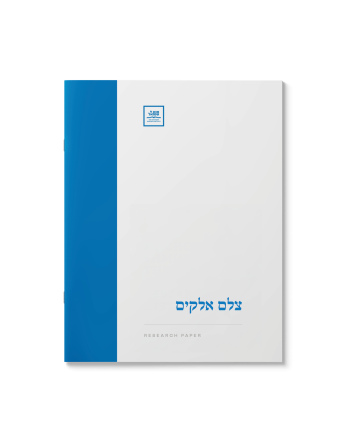The Greatest Paradox: The Power of Free Choice
$75.00
If an omniscient G-d already knows what our future holds,
how is it possible to have free will? Known as the clash of yediah and
bechirah, this paradox has gripped scholars for millennia. This paper explores
the ongoing debate.
| Language | English |
|---|---|
| Paper Type | Research Paper |
| Pages | 23 |
Related Products
Our Sages teach that the passing of the righteous serves to pardon the misdeeds of the generation. Does actual penitence on the part of the people play any role in the forgiveness that is granted? Is this associated, in any way, with the date of the passing of the righteous individual?
The
Torah contains instances where G-d appears to have reconsidered His decision, often in response
to human action. How can an eternal G-d be subject to change? Does that mean
the earlier decision was wrong? Is G-d’s word not final?
When tragedy strikes, we
struggle to understand G-d’s ways. Is it ok to openly challenge Him? Is it a
sign of deep belief or deep blasphemy? What about the Jewish greats, Moses at
their head, who brazenly questioned G-d? This paper is a comprehensive study of
the acceptable Jewish response to death, tragedy and pain.
The belief that the world is created and sustained by G-d at every moment is commonplace. Recently some have challenged the assumption that this is the classical understanding of mainstream Jewry. Is he correct?
How can we reconcile the fact that the length of a person’s life is predetermined by G-d and those behaviors that can shorten one’s life? Do we have any control over life expectancy? How much significance ought one give to medical intervention in terms of lengthening life?
“Why do the wicked prosper?” (Jeremiah12:1) This question has troubled the faithful from the times of Job and Jeremiah until today. Ought our faith in an unknowable G-d be weakened when witnessing the prosperity of the wicked? A smorgasbord of classic approaches.
(Hebrew)
One of the most painful events to strike the Jewish people in recent memory is the tragedy of the Holocaust, which decimated European Jewry in a show of appalling cruelty. Having narrowly escaped its horrors himself, the Rebbe was uniquely placed to offer comfort and guidance to those who survived with both faith and sensitivity.
Part I – Making Sense of the Senseless: The horrific suffering of the Holocaust, having seared into our collective conscience, has confronted many Jews with a crisis of faith. The Rebbe offers a unique approach, allowing us to affirm our faith in a kind and just G-d, while maintaining our empathy for the plight of the Holocaust victims.
This paper addresses a range of issues. How does one maintain faith in G-d’s justice in light of such unfathomable horrors? Is this paradox surmountable for all, including those who do not fully subscribe to all dimensions of Torah scholarship? Is it appropriate to rationalize the plight of the Holocaust victims? Does our moral outrage preclude us from taking to heart the lessons these events offer?
כי בצלם אלקים עשה את האדם. האומנם? והרי אינו שייך ציור גופני אצל הקב״ה ח״ו? להלן חקר ועיון תמציתי משלל הפירושים שנאמרו בזה על ידי מפרשי המקרא, הוגי מחשבת ישראל, ומאורי הקבלה והחסידות.
In recent decades, thousands of Jews have gravitated to the East in pursuit of spiritual enlightenment. More recently, several Eastern Practices have been secularized, popularized, and repackaged as physical and meditative exercises. Does this make them kosher? Which practices are problematic and should be avoided? And what was the Rebbe’s response to the popularization of Yoga and Transcendental Meditation back in the ’70s?
(67 pages)
Submitted by a Shliach in New York
The human soul has always sensed the presence of a greater power. Yet the “G-d of Concealment” has somewhat evaded logical discovery.
Study some of the classic proofs for the existence of the Creator as presented by classic Jewish Philosophers (R. Saadya Gaon, Rambam, R’ Bachye ibn Paquda, Ralbag and others), the challenges presented by some more modern authors (including Hume, Kant, Neizche, Darwin and Dawkins) and some of the responses offered to their ideas.
Including a summary and some suggested readings.
Hashgachah Pratis literally means, “Personal divine providence.” This refers to the ever-present eye of G-d that watches and directs our every step. Where did this concept originate from? Who coined the term? Once the world has been created by G-d, why is it necessary for Him to continue to “manage” my life? How is free choice to be reconciled with Divine Providence?
מעיקרי האמונה הוא החיוב להאמין שהקב”ה מושלל הוא מגשם וציור גופני. אך האומנם זאת היא הדיעה המוסכמת אצל גדולי ישראל לדורותיהם? והאם ביכולתו ית׳ הבלתי בעל גבול להתלבש גם בדמות גופני? על שלילת הגשמות והנמנעות אצלו ית׳ בספרות החקירה והחסידות.















